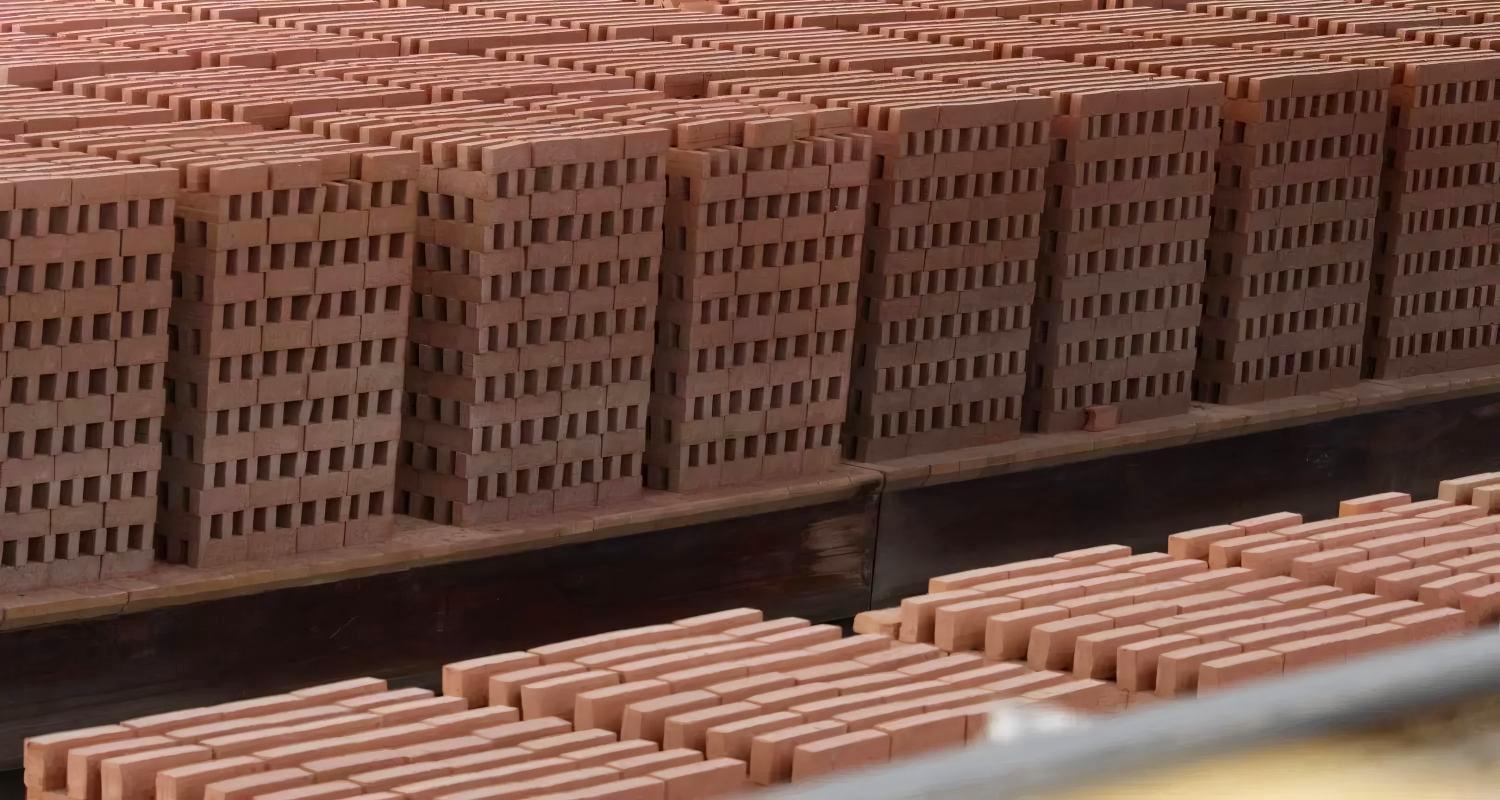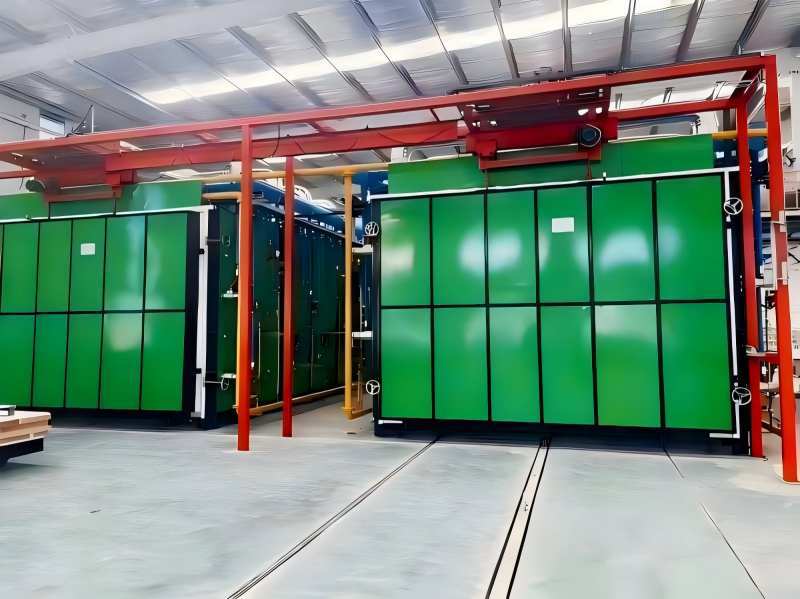Henan Yaxin Kiln Co., Ltd.
Exploring the Efficiency of Mobile Tunnel Kilns in Modern Manufacturing
Sep 22,2025
Exploring the Efficiency of Mobile Tunnel Kilns in Modern Manufacturing
Table of Contents
- 1. Introduction to Mobile Tunnel Kilns
- 2. Understanding Mobile Tunnel Kilns
- 3. Benefits of Mobile Tunnel Kilns in Manufacturing
- 4. How Mobile Tunnel Kilns Work
- 5. Applications of Mobile Tunnel Kilns in Various Industries
- 6. Case Studies: Success Stories Using Mobile Tunnel Kilns
- 7. Challenges and Solutions in Mobile Tunnel Kiln Operations
- 8. The Future of Mobile Tunnel Kilns in Modern Manufacturing
- 9. Conclusion
- 10. Frequently Asked Questions
1. Introduction to Mobile Tunnel Kilns
In today's fast-paced manufacturing landscape, efficiency and adaptability are paramount. The emergence of **mobile tunnel kilns** represents a significant advancement in thermal processing technology. These kilns are designed to offer unparalleled flexibility, allowing manufacturers to adjust their production processes in real time, thereby enhancing operational efficiency.
In this article, we will explore the various aspects of mobile tunnel kilns, including their benefits, operation mechanisms, and applications across different industries.
2. Understanding Mobile Tunnel Kilns
Mobile tunnel kilns are industrial furnaces that facilitate the continuous processing of materials. Unlike traditional kilns, which are stationary and require significant infrastructure, mobile tunnel kilns can be relocated and repurposed depending on production needs. This flexibility allows manufacturers to optimize their production workflows effectively.
2.1 The Design of Mobile Tunnel Kilns
The design of mobile tunnel kilns incorporates advanced technology to maximize efficiency. They consist of several key components:
- **Kiln Chambers:** The primary space where materials are processed.
- **Heat Exchangers:** These ensure optimal temperature regulation, crucial for consistent product quality.
- **Conveyor Systems:** Allow continuous feeding and unloading of materials, reducing downtime.
- **Control Systems:** Enable real-time monitoring and adjustments to temperature and processing rates, enhancing precision.
2.2 Types of Mobile Tunnel Kilns
There are various types of mobile tunnel kilns, each tailored to specific material processing needs:
- **Gas-Fired Kilns:** Utilize natural gas as a fuel source, offering high thermal efficiency and lower emissions.
- **Electric Kilns:** Ideal for precise temperature control, making them suitable for specialized applications.
- **Hybrid Kilns:** Combine gas and electric heating for versatility in production processes.
3. Benefits of Mobile Tunnel Kilns in Manufacturing
The adoption of mobile tunnel kilns brings numerous advantages to manufacturers looking to improve their processes.
3.1 Enhanced Flexibility and Mobility
Manufacturers can relocate kilns based on changing production demands or material types, leading to optimized resource allocation.
3.2 Improved Energy Efficiency
Mobile tunnel kilns typically consume less energy than traditional kilns, thanks to advanced heat recovery systems that minimize waste.
3.3 Cost Reduction
By reducing energy consumption and lowering maintenance costs associated with stationary kilns, companies can significantly decrease their overall operational expenses.
3.4 Consistent Product Quality
The ability to control temperature and processing time accurately ensures that products meet consistent quality standards, which is essential for maintaining customer satisfaction.
4. How Mobile Tunnel Kilns Work
Understanding the operational mechanics of mobile tunnel kilns is key to appreciating their efficiency.
4.1 The Process Flow
Materials enter the kiln through a conveyor system, moving through different zones where specific thermal treatments occur. The controlled environment within the kiln ensures that materials are uniformly processed.
4.2 Temperature Control
Advanced control systems enable manufacturers to adjust the temperature and processing times dynamically, allowing for real-time optimization based on material type and desired outcomes.
4.3 Heat Distribution
Mobile tunnel kilns utilize sophisticated heat distribution techniques, ensuring that all materials receive uniform heating, thereby enhancing quality and reducing defects.
5. Applications of Mobile Tunnel Kilns in Various Industries
Mobile tunnel kilns find applications across a range of industries, demonstrating their versatility and efficiency.
5.1 Ceramics and Pottery
In the ceramics industry, mobile tunnel kilns are used for firing clay products, providing consistent temperatures that are essential for achieving desired material properties.
5.2 Metal Processing
Metal manufacturers utilize mobile tunnel kilns for heat treatment processes, optimizing the properties of metals for various applications.
5.3 Glass Manufacturing
Glass manufacturers rely on mobile tunnel kilns for the melting and shaping of glass materials, benefiting from precise temperature control.
5.4 Food Processing
In the food industry, mobile tunnel kilns are employed for drying and roasting processes, enabling manufacturers to maintain product quality while improving efficiency.
5.5 Refractories
Mobile tunnel kilns are essential in the production of refractory materials, which require high-temperature processing to achieve optimal properties.
6. Case Studies: Success Stories Using Mobile Tunnel Kilns
Several manufacturers have successfully integrated mobile tunnel kilns into their operations, yielding impressive results.
6.1 Case Study 1: Ceramic Manufacturer
A ceramic manufacturer integrated mobile tunnel kilns into their production line, reducing energy costs by 30% and increasing output by 25%. The flexibility of the kilns allowed them to produce a wider variety of products without significant downtime.
6.2 Case Study 2: Metal Processing Company
A metal processing company implemented mobile tunnel kilns for heat treatment, leading to improved product quality and a 40% reduction in processing time. The ability to relocate the kilns also allowed for better space utilization in their facility.
7. Challenges and Solutions in Mobile Tunnel Kiln Operations
While mobile tunnel kilns offer many benefits, there are challenges associated with their operation.
7.1 Initial Investment Costs
The upfront cost of mobile tunnel kilns can be a significant barrier for some manufacturers. However, the long-term savings in energy and operational efficiency often justify this investment.
7.2 Training and Skill Development
Employees may require training to operate and maintain mobile tunnel kilns effectively. Manufacturers should invest in comprehensive training programs to maximize the benefits of this technology.
8. The Future of Mobile Tunnel Kilns in Modern Manufacturing
The future of mobile tunnel kilns looks promising as technology continues to evolve. Innovations in automation and control systems are likely to further enhance their efficiency and flexibility. As manufacturers increasingly focus on sustainability, mobile tunnel kilns’ energy-efficient designs will play a crucial role in reducing carbon footprints.
9. Conclusion
Mobile tunnel kilns represent a transformative technology in modern manufacturing, offering enhanced efficiency, flexibility, and product quality. As industries continue to adapt to changing market demands, the role of these kilns in streamlining production processes will only grow. By investing in mobile tunnel kiln technology, manufacturers can position themselves competitively in an ever-evolving landscape.
10. Frequently Asked Questions
10.1 What materials can be processed in mobile tunnel kilns?
Mobile tunnel kilns can process a variety of materials, including ceramics, metals, glass, and refractories.
10.2 How do mobile tunnel kilns differ from traditional kilns?
Mobile tunnel kilns are portable and flexible, allowing manufacturers to relocate them as needed, unlike traditional stationary kilns.
10.3 Are mobile tunnel kilns energy-efficient?
Yes, mobile tunnel kilns are designed to be energy-efficient, often using advanced heat recovery systems to minimize energy consumption.
10.4 What are the maintenance requirements for mobile tunnel kilns?
Maintenance requirements vary, but regular inspections and prompt repairs of components are essential to ensure optimal performance.
10.5 Can mobile tunnel kilns be customized for specific applications?
Yes, mobile tunnel kilns can be tailored to meet the specific needs of different industries and materials, enhancing their versatility.
PREVIOUS:
Contact Us
E-mail:
Phone:
Address:
Suixian Industrial Agglomeration Zone, Henan Province





